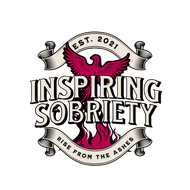Addiction Recovery and Relapse "What's It Going To Take?"
When an addict or alcoholic relapses, there are usually certain "triggers" that cause addiction to resurface. These triggers can include people, places, and things, but the root of the problem is addiction itself - addiction isn't "curable", but rather becomes manageable; if proper steps are taken to begin and maintain a recovery journey.
The issue with managing addiction and alcoholism is that management requires constant and consistent attention. This attention has to be given in order for the disease to remain under control. When something goes wrong (and even more surprisingly, when something goes right), then it becomes very easy to relapse into full-blown addiction if one doesn't realize what's happened or knows how to handle that trigger in a healthy way (for instance: drinking one beer instead of ten).
Triggers in addiction relapse are usually the same, although everyone has different triggers. Here are some of the common addiction relapse triggers, and ways to manage or prevent addiction's return:
- Stress
- Negative Emotions
- Loneliness
- Feeling Overwhelmed
- Unhealthy Relationships
- Physical Pain/Sickness
The addiction relapse trigger of stress is one that is very commonly seen in addiction recovery. People who are recovering from addiction tend to avoid situations where they feel "stressed", but this avoidance doesn't help because it does not get rid of the source of the addiction - stress itself - which can lead them straight back into their addiction if something goes wrong.
The addiction relapse trigger of negative emotions is similar to the addiction relapse trigger of stress, as both are caused by anxiety. For many people recovering from addiction, there's a certain amount of anxiety that needs to be felt in order for them to feel normal and healthy - this is not healthy or normal. People have varying levels of addiction triggers , but some common ones include feeling boredom, feeling anger, and feeling upset about something. These feelings can all lead someone back towards their addiction if they do not learn how to manage those strong emotions properly. Addiction relapse triggers such as loneliness and being overwhelmed often occur at night because it gives addicts time where they can focus on themselves instead of others (which can be very triggering).
People who are recovering from addiction need to be very careful when it comes to addiction relapse triggers such as loneliness and feeling overwhelmed, because addiction can be a very sneaky and deceiving disease.
Physical pain and sickness (often the case with addiction) will often lead addicts back into their addiction if they don't learn how to manage that addiction trigger properly. Addiction relapse triggers such as physical pain and sickness can occur at any time in addiction recovery, which makes sense because addictions obviously do not heed "time" like people do - addictions come whenever they want, no matter what is occurring or how much time has passed since last use. Because addiction doesn't care about "time", it's extremely for those who have recently relapsed to learn what addiction relapse triggers such as physical pain and sickness can do to addiction.
Time is important in addiction recovery, as it moves forward whether people like it or not. Learning how to manage addiction relapse triggers such as time provides those recovering from addiction with a healthy approach towards what this "time" means and how they can prevent addiction's return by managing their addiction relapse trigger of time properly.
There are many different addiction relapse triggers that addicts and alcoholics must be aware of in order for them to remain sober and avoid addiction's destructive return after recovering from their disease. Knowing about these triggers gives addicts the knowledge they need to understand addiction better, but the knowledge itself will not serve as a replacement for proper action; one must take vigilant action.
Unhealthy relationships in addiction recovery are especially dangerous addiction relapse triggers, because addiction can be very deceptive in addiction relapse triggers such as these.
One of the most important things for addicts to realize in addiction recovery is that they will never be able to fully trust their addiction again , because addiction tricked them before and it could trick them again by using "unhealthy" relationships against them which lead straight back into addiction's destructive embrace.
Addiction relapse triggers such as unhealthy relationships should never be ignored when recovering from addiction because overcoming this addiction relapse trigger takes time (and patience), but not much different than what one needs to overcome other addiction relapse triggers.
Once an addict becomes familiar with all the many different types of addiction relapse triggers there are, they can navigate their 12 step program with knowledge and wisdom, not addiction-based ignorance. Learning about addiction relapse triggers does not mean that an addict will automatically avoid addiction; addiction recovery requires continual effort and vigilance to overcome addiction's many deceptions.
The opinions expressed in this article are those of the author alone and open for discussion by people who have first-hand experience with addiction or possess second/third hand addiction recovery knowledge (e.g., therapists, 12 step program participants). This article is provided as a resource and should not be treated as anything other than informative writing based on the historical information cited above (in italics following each relevant point) which can help provide better insight/understanding into this subject matter. I am not personally providing any professional advice here; merely my personal experience with addiction, relapse, and recovery.
We Do Recover. Together. 💜
Jennifer, a Grateful Recovering Addict and Alcoholic
 is here! Shop now, pay later in 4 easy installments
is here! Shop now, pay later in 4 easy installments
